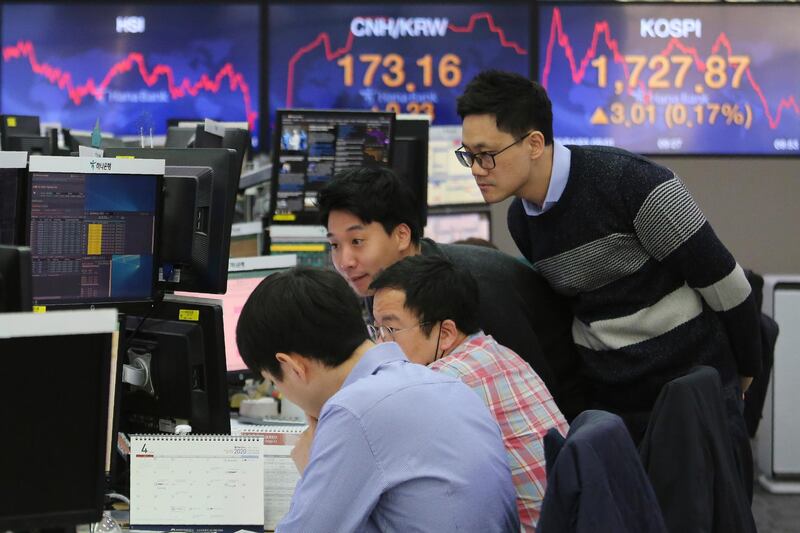Markets have attempted to rally over the past two weeks, buoyed by limitless quantitative easing and huge fiscal policy packages announced by governments and central banks around the world.
These rallies were already faltering at the end of last week, however, under the weight of the enormity of the economic destruction unfolding because of the measures being taken to combat the coronavirus. The International Monetary Fund’s managing director Kristalina Georgieva described it as "a crisis like no other" which goes to the heart of why measures taken to deal with past crises are having less effect this time around.
Equity markets attempted to rally as policymakers rolled out the textbook responses seen during past global crises, but on an altogether bigger scale. They also seized on periodic glimpses of optimism that showed a slowdown in the rate of new Covid-19 infections in Italy, for example, which might offer hope that global lockdowns are beginning to work.
They even saw oil prices rally on the possibility of a global output deal between major oil producers. However, even this could not sustain the broader market recoveries, as the economic cost of coronavirus became ominously clear at the end of last week with jobless rates soaring to unprecedented levels around the world.
What markets are struggling to come to terms with is that this crisis has its own unique characteristics, dynamics and timelines that no attempt to shoehorn a recovery by traditional means can probably change. Foremost is that this is a healthcare crisis first, an economic crisis second and a financial crisis third. This helps to explain why prioritising measures to deal with the financial aspect of it are having less effect than in the past.
This is not to say that policymakers are wrong to support the financial system, far from it, as preventing the financial system from collapsing is essential if governments are to have any chance of solving the bigger healthcare challenge as well as the economic one. However, market recoveries will not be sustainable until the source of the crisis is fixed, with a medical solution to coronavirus coming online, and until they can see a way forward for a sustainable economic recovery from the carnage currently being inflicted by the strategy of containment and lockdown measures.
There don't appear to be any easy remedies to these problems. Of course markets would cheer if a vaccine or treatment for Covid-19 was suddenly available, but at the moment this 'perfect' scenario looks some way off. Instead investors are likely to have to make do with 'imperfect’ outcomes for some time to come.
In the absence of a vaccine, investors are hoping for signs the pandemic will run its course in the next month and that the trajectory of the Covid-19 infection and mortality rate will slow by their own volition or on account of the travel bans and lockdowns imposed. However, such hopes are not a reliable enough basis for a sustainable market recovery just yet. Furthermore, what if these polices have to be extended into May? The imposition of much tougher restrictions on travel and social activity have probably not been discounted and would keep most of the global economy shutdown for much longer than currently assumed.
Alternatively, at some point, governments will face difficult choices about the costs versus the benefits in terms of the economy and weigh the consequences of an early return to work against the risk of a further wave of infections and deaths.
Populations may even force such outcomes by their behaviours depending on how they challenge the restrictions. This could produce an upturn in the economy which would be welcomed to a certain extent, but it may be short-lived if the underlying health care issue has not been properly dealt with, and for this reason such an outcome would again be imperfect.
Until the markets can see clearly that the coronavirus pandemic is being contained at a global level, which will inevitably take time to play out in the absence of a vaccine, investors will probably have to make do with such imperfect options, outcomes or solutions, helping to explain why attempted market rallies based on massive liquidity injections alone are making so little headway.
Tim Fox is chief economist and head of research at Emirates NBD







